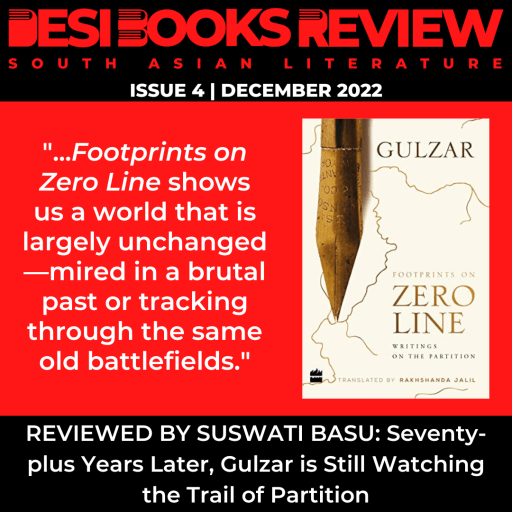
Desi Books Review has launched the fourth edition of its journal, highlighting the vocabulary of the Partition.
In August, 1947, when, after three hundred years in India, the British finally left, the subcontinent was partitioned into two independent nation states: Hindu-majority India and Muslim-majority Pakistan. Immediately, there began one of the greatest migrations in human history, as millions of Muslims trekked to West and East Pakistan (the latter now known as Bangladesh) while millions of Hindus and Sikhs headed in the opposite direction. Many hundreds of thousands never made it.
The goal of Desi Books Review is to provide singular ways to approach and engage with particular books, to explore what the writer has aimed for, and understand whether they’ve achieved it. It is not to tell readers whether a book is good or bad or provide a summary. These books represent parts of the South Asian diaspora, hence the Partition is significant for this edition.
I was fortunate enough to contribute to this quarter’s edition, looking at Gulzar’s Footprints on Zero Line. Here is a short extract:
“With Footprints on Zero Line: Writings on the Partition, a collection of poetry, fiction, and non-fiction on the Partition, the virtuoso artist has joined countless other writers in exploring personal and communal histories.”
Read the rest of the review: Seventy-plus Years Later, Gulzar is Still Watching the Trail of Partition
Check out the Jaipur Literary Festival from earlier this year.
[…] Read: Desi Books Review: Gulzar’s Footprints on Zero Line […]